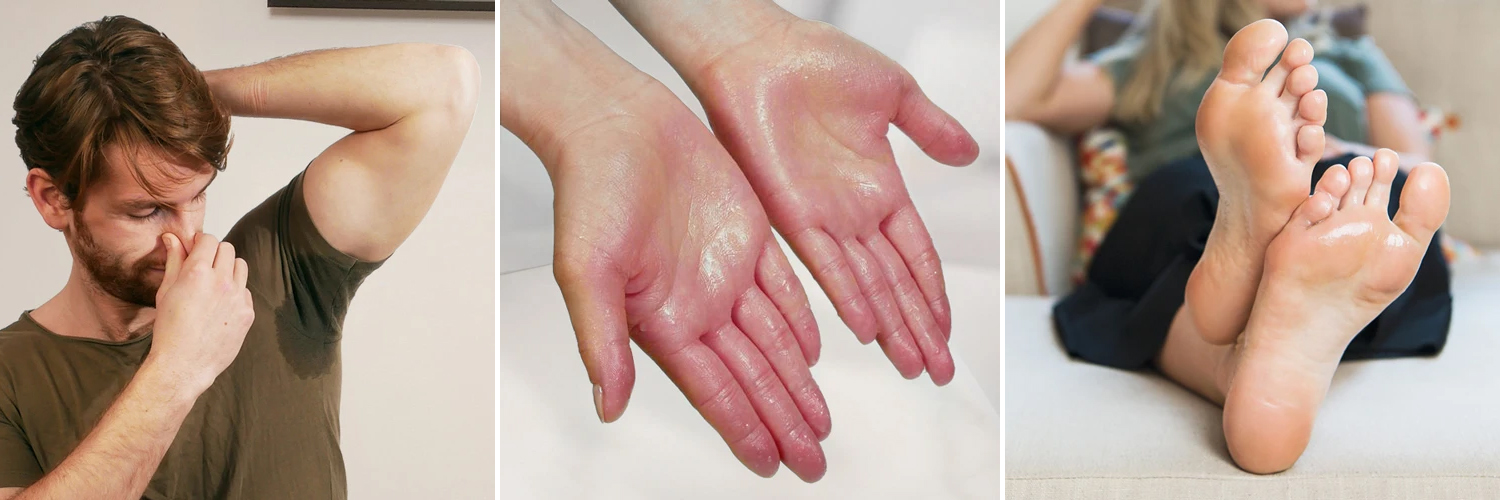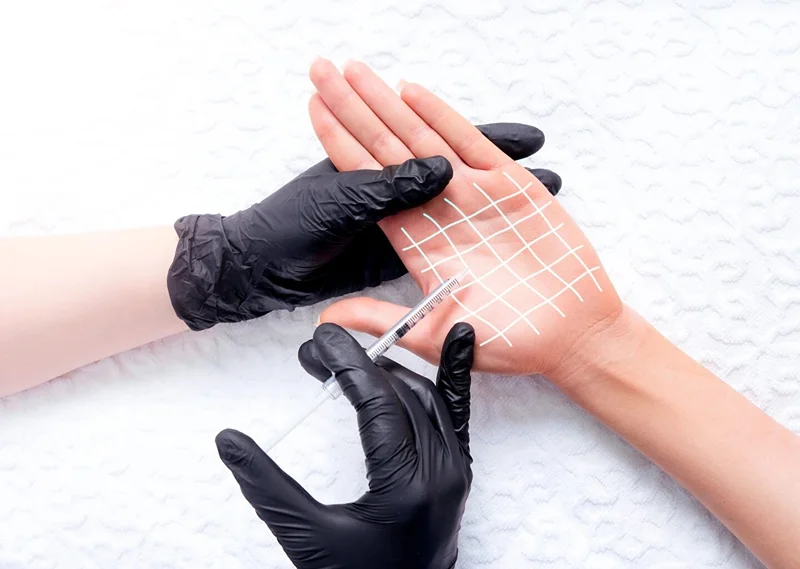Comprehensive Guide to Sweaty Hands Treatment: Proven Dermatology Techniques
Understanding the Root Causes of Excessive Sweating and Its Influence On Daily Life
While it is typically comprehended as a physiological feedback to control body temperature, the triggers for extreme sweating can differ widely among individuals, incorporating not only physical aspects yet additionally psychological and emotional components. By diving right into the root creates of hyperhidrosis and discovering its complex results, a deeper understanding of this pervasive issue can be acquired, shedding light on the intricacies that individuals grappling with too much sweating browse on a day-to-day basis.
Physiology of Sweat Glands
The guideline of sweat production, a critical physiological procedure, is mostly controlled by the task of gland distributed throughout the human body. Gland are categorized into two major kinds: eccrine and apocrine glands. Eccrine glands are one of the most countless and are discovered in nearly all locations of the body. They play a vital duty in thermoregulation by producing a watery fluid onto the skin's surface area, which aids and evaporates cool the body down. On the other hand, apocrine glands are concentrated in areas abundant in hair follicles, such as the armpits and groin, and their secretions are thicker and milklike in appearance.
When the body temperature level rises, either due to physical activity, high temperature levels, or psychological tension, the nerve system triggers the sweat glands to create sweat. This sweat is made up largely of water and electrolytes like sodium and chloride. The process of sweat manufacturing is vital for maintaining the body's interior temperature within a narrow, ideal array, highlighting the essential function sweat glands play in human physiology.
Triggers for Excessive Sweating
In understanding the root causes of too much sweating, it is crucial to identify the triggers that can cause this physiological feedback. Excessive sweating, likewise recognized as hyperhidrosis, can be prompted by numerous variables, both physical and ecological. One typical trigger is psychological stress or stress and anxiety, which can stimulate the body's gland to create even more sweat than is necessary for cooling down. Physical physical effort, high temperatures, and spicy foods are additionally known to activate excessive sweating in people prone to this problem. Certain clinical problems like diabetes mellitus, hyperthyroidism, or menopause can add to too much sweating as well.
Additionally, medicines such as some antidepressants, opioids, and certain supplements can additionally function as triggers for hyperhidrosis. Understanding these triggers is crucial in taking care of too much sweating effectively - Treatment for hyperhydrosis of hands and feet. By recognizing and addressing the specific triggers that trigger extreme sweating in a specific, health care companies can develop tailored therapy plans to alleviate this problem and boost the individual's top quality of life
Medical Conditions Associated
Associated with extreme sweating are numerous medical conditions that can intensify this physiological reaction. One usual condition is hyperhidrosis, a problem characterized by abnormally boosted sweating that goes beyond the body's thermoregulatory needs. This can manifest in focal areas like the palms, soles, underarms, or face, affecting an individual's lifestyle due to social humiliation and pain.
Furthermore, endocrine problems such as hyperthyroidism, diabetes mellitus, and menopausal warm you could try here flashes can additionally result in excessive sweating. Hyperthyroidism causes an overflow of thyroid hormonal agents, accelerating metabolic rate and triggering sweating. Diabetes mellitus can cause sweating episodes, particularly throughout hypoglycemic episodes when blood sugar degrees drop as well low. Menopausal hot flashes, connected to hormonal fluctuations during menopause, can create extreme and abrupt sweating, typically gone like this along with by flushing and heart palpitations.
In addition, infections like hiv, tuberculosis, and endocarditis have been connected with evening sweats, an usual sign recognized to disrupt sleep and impact overall well-being. These medical conditions highlight the diverse series of underlying aspects that can add to too much sweating, requiring thorough evaluation and management by medical care specialists.
Psychological and Psychological Variables

Influence on Social Communications
Excessive sweating can have extensive results on a person's ability to involve pleasantly in social communications. The visible signs of sweat stains or wet patches on clothing can bring about embarrassment and self-consciousness, causing individuals to withdraw from click this link social scenarios. This withdrawal can affect relationships, limitation social activities, and prevent personal and professional growth.

In addition, the stress and anxiety and self-confidence concerns stemming from excessive sweating can influence interaction and interpersonal skills. People may battle to focus on conversations, take part in group activities, or express themselves confidently. This can bring about sensations of seclusion and solitude, as social connections become challenging to maintain.
Conclusion

While it is commonly understood as a physiological feedback to control body temperature, the triggers for too much sweating can vary commonly amongst people, including not only physical factors yet also emotional and mental aspects. By diving into the root creates of hyperhidrosis and discovering its multifaceted impacts, a much deeper understanding of this prevalent problem can be obtained, shedding light on the complexities that individuals grappling with excessive sweating navigate on a daily basis.
Physical exertion, high temperatures, and spicy foods are additionally understood to trigger excessive sweating in individuals susceptible to this condition. By determining and attending to the certain triggers that prompt too much sweating in a private, healthcare suppliers can establish customized therapy plans to alleviate this condition and improve the person's high quality of life.
Extreme sweating can have extensive impacts on an individual's capacity to involve pleasantly in social interactions.